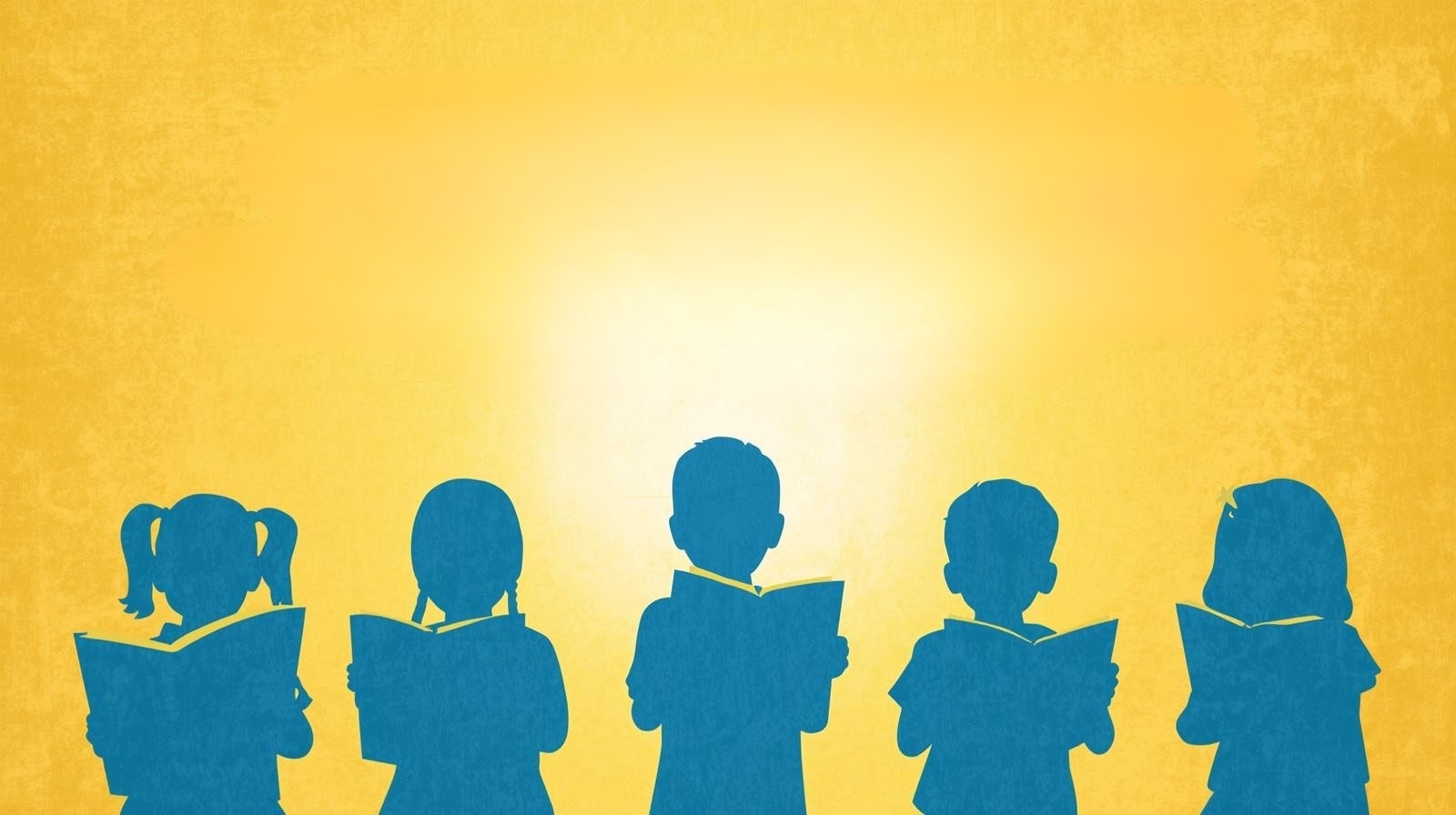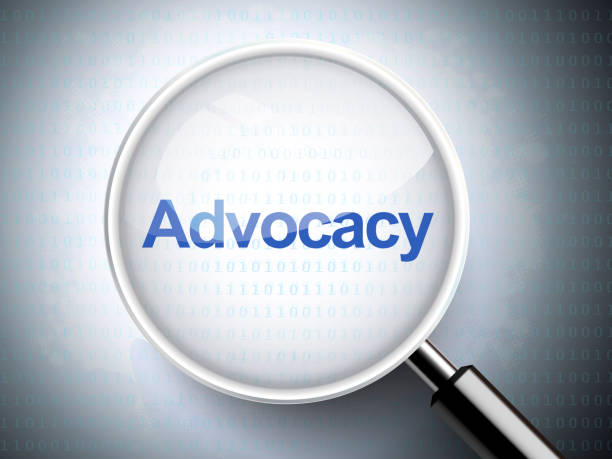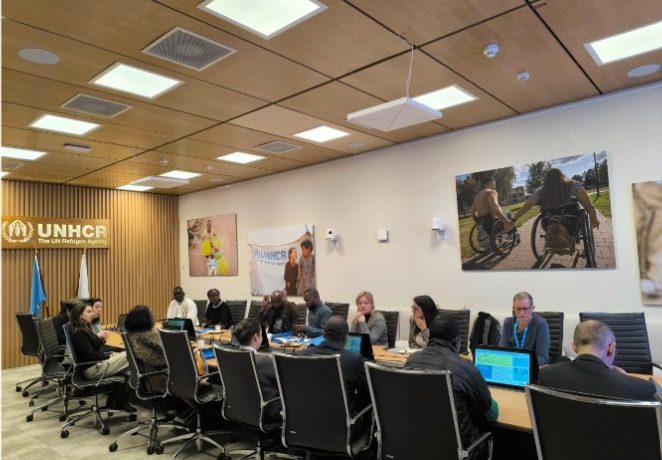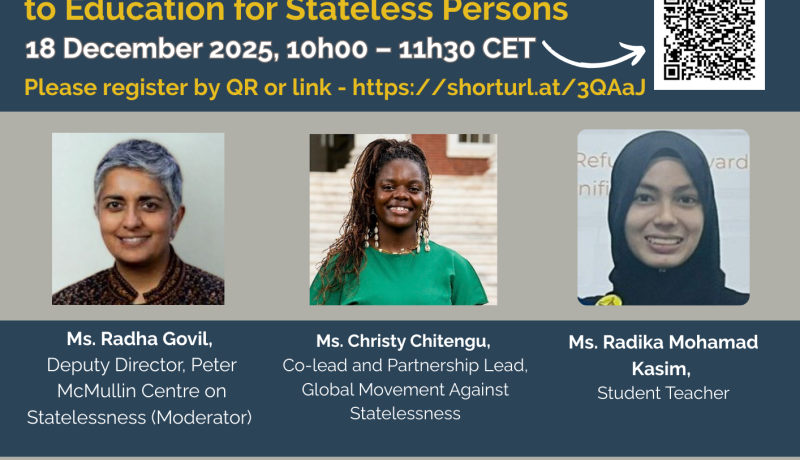Joint statement in support of the Optional protocol to the Convention on the Rights of the Child on the rights to early childhood education, free pre-primary education and free secondary education.

The Global Alliance Thematic Working Group on Protecting the Rights of Stateless Persons has released a Joint statement in support of the Optional protocol to the Convention on the Rights of the Child on the rights to early childhood education, free pre-primary education and free secondary education.
Education is a pathway to opportunity and dignity, yet millions of stateless children are excluded due to lack of documentation, discrimination, financial and other barriers. The Working Group – co-led by UNHCR and the Peter McMullin Centre on Statelessness – calls for States to seize this opportunity to ensure every child can learn and thrive. Please read the full statement below and find the PDF version below the text.
Joint Statement in support of the Optional protocol to the Convention on the Rights of the Child on the rights to early childhood care and education, free public pre-primary education and free public secondary education
We present this joint statement on behalf of the Thematic Working Group on protecting the rights of stateless persons of the Global Alliance to End Statelessness. The Global Alliance to End Statelessness is a collaborative multistakeholder platform led by UNHCR, the UN Refugee Agency, with a vision to create “a world free from statelessness where everyone enjoys the right to a nationality without discrimination”. As one of the Alliance’s workstreams, the Thematic Working Groups (TWGs) are the forums to advance solutions to statelessness, primarily through the sharing of best practices by Global Alliance members, and the exploration of stategies and collaborative initiatives. This joint statement has been prepared by the TWG on Protecting the Rights of Stateless Persons, co-led by UNHCR and the Peter McMullin Centre on Statelessness. In line with the TWG’s 2025 thematic focus on the right to education for stateless persons, we express our support for the development and eventual adoption of the proposed Optional Protocol to the Convention on the Rights of the Child on the rights to early childhood education, free pre-primary education and free secondary education.
Education stands both as a fundamental human right and a beacon of hope, offering stateless children the promise of a better future. It equips them with academic knowledge and important life skills, serving as an investment in their future as well as a pathway to employment opportunities. Education can be the gateway out of the poverty and deprivation faced by stateless communities intergenerationally. Nevertheless, stateless children, or children who are not recognised as nationals by any country, experience significant barriers including lack of identity documentation and the necessary financial resources needed to access education. UNICEF reports that 200 million children under age of 5 lack birth certificates excluding them from education systems that require proof of legal identity.1
Stateless children face several challenges when transitioning from primary to secondary education. At the end of primary school, many are unable to sit for final exams or receive diplomas due to the lack of identity documents such as birth certificates and nationality identity cards. Final results are often required to enrol in secondary school. In addition to documentation barriers, stateless children often face significant schooling fees, as they are considered non-nationals and excluded from financial aid or free public schooling which is reserved for nationals. Without the required certifications and qualifications, stateless children are significantly limited in their ability to advance to tertiary level education. UNHCR’s consultations with stateless children reveal their strong desire to graduate from secondary school and attend university, yet only a small percentage were able to achieve this. The proposed Optional Protocol would therefore ensure stateless children’s access to early childhood education, free pre-primary education and free secondary education, which in turn, would open significant opportunities for them in the future.
We welcome and extend our support to Resolution (A/HRC/RES/56/5) adopted by the United Nations Human Rights Council on 12 July 2024 which establishes an open-ended intergovernmental working
group with the mandate to explore the possibility of, elaborating, and submitting to the Human Rights Council a draft optional protocol to the Convention on the Rights of the Child. This is a positive step for stateless children in accessing public education system, with the objectives of:
• Explicitly recognising the right to early childhood care and education;
• Ensuring states make free public pre-primary education, beginning with at least one year;
• Requiring states to make free public secondary education for all children.
It is also important to highlight that the proposed Optional Protocol is in line with the existing legal obligations for State parties, as enshrined in Article 22 of the 1954 Convention relating to the Status of Stateless Persons, which requires states to:
1. Treat stateless persons the same as nationals with respect to elementary education;
2. Provide to stateless persons treatment as favourable as possible and, in any event, not less favourable than that accorded to aliens generally in the same circumstances, with respect to education other than elementary education and, in particular, as regards access to studies, the recognition of foreign school certificates, diplomas and degrees, the remission of fees and charges and the award of scholarships.
We also support the resolution’s commitment to child participation and urge the inclusion of stateless or formally stateless child representatives to the September meeting, as this opportunity would enable them to share their experiences and contribute to the deliberation of the proposed Optional protocol in the intergovernmental working group meeting in Geneva on 1-4 September 2025.
Sincerely,
Signed (in alphabetical order):
Apatride Network
ASKV / The Netherlands
Centro para la Observación Migratoria y el Desarrollo Social en el Caribe
European Network on Statelessness
Fidel Birhan Charitable Organization (FBCO), Ethiopia
Institute on Statelessness and Inclusion
Kazakhstan International Bureau for Human Rights and Rule of Law
Migration and Trafficked Persons Law Clinic, Baze University, Abuja, Nigeri
Office of the High Commissioner for Refugees, UNHCR
Peter McMullin Centre on Statelessness
Right to Protection Charitable Foundation
Ruwad alHoukouk (Frontiers Rights) Association, Lebanon
Salam for Democracy and Human Rights (SALAM DHR), Bahrain
Ufuq Organization for Human Development
U.S. Committee for Refugees and Immigrants
Voice of Children Nepal
Joint statement in support of the Optional protocol to the Convention on the Rights of the Child on the rights to early childhood education, free pre-primary education and free secondary education.
11 February 2026
Support the Joint Statement: Advancing Vocational Inclusion of Stateless People Across the UN

As part of a multi-pronged advocacy approach to scale up UNHCR’s good practice of removing barriers to the employment of stateless persons, the Joint Statement, drafted by Apatride Network, seeks to encourage all UN entities to follow suit. We are calling on Global Alliance members and other organizations to endorse it and sign on.
Read more6 February 2026
Call for Applications: UNHCR Global Advisory Board of Organizations Led by Forcibly Displaced and Stateless Persons

The United Nations High Commissioner for Refugees (UNHCR) has launched a Call for Expression of Interest for its Global Advisory Board of Organizations Led by Forcibly Displaced and Stateless (2026–2028). We strongly encourage stateless-led organizations within the Global Alliance network and beyond to apply by 8 February and bring their expertise and lived experience to this important global platform.
Read more8 January 2026
Realizing the Right to Education for Stateless Persons

On 18 December 2025, Radha Govil, Deputy Director of the Peter McMullin Centre on Statelessness and Co-lead of the Thematic Working Group (TWG) on Protecting the Rights of Stateless Persons, moderated the fifth and final Global Alliance webinar of the year: “Unlocking Futures: Realizing the Right to Education for Stateless Persons.”
Read more